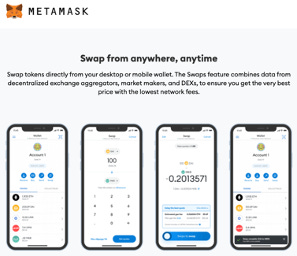Exponential forces
Exponential forces. Let’s dig into this.
Compound interest is the exponential force behind Warren Buffet’s net worth. In the Psychology of Money, Morgan Housel writes “If something compounds – if a little growth serves as the fuel for future growth – a small starting base can lead to results so extraordinary they seem to defy logic. It can be so logic-defying that you underestimate what’s possible.” He goes on to note “as I write this, Warren Buffet’s net worth is $84.5 billion. Of that, $84.2 billion was accumulated after his 50th birthday. $81.5 billion came after he qualified for Social Security, in his mid-60s”
That’s shocking when you first hear it! It’s clear this exponential force is not something to underestimate.
Now lets talk about software, composability, and blockchains.
First, a disclosure that this topic has technical depth beyond my knowledge so I feel somewhat an imposter writing this. I’m open to feedback if you want to reply to the email. Ok moving on.
Composability describes the notion that software can be like Lego blocks that you can stack together to create something new. This means that developers can use already-built components instead of having to build everything from scratch themselves. Wikipedia describes that “a highly composable system provides components that can be selected and assembled in various combinations to satisfy specific user requirements.”
Composability is an exponential force because 1) each problem only needs to be solved once and 2) developers can do more with less resources.
For example, Google Maps created their maps software to be composable with other applications. Thus, Uber can create their car service without first creating an entire mapping of the world. They just snap in the Google Maps API.
Now let’s move into why this is so important for blockchain networks.
The primary difference with blockchains is about permissions and dependencies. To use that Google Maps API requires a user to agree to terms and conditions that include “Google may make changes to the Services, which may include adding, updating, or discontinuing any Services or portion or feature(s) of the Services” and “Google may make changes to the Agreement, including pricing and any linked documents.” So if you’re a developer, your entire product is hinged to an agreement with Google who can unilaterally make changes as they see fit. This should be concerning as there are many examples of API companies changing their services which then killed apps using it (e.g. Twitter).
In contrast to company-owned APIs, blockchains are permissionless environments for software. Developers can use the software without legal terms and dependencies. The code on a blockchain runs without fear of any single company changing its rules or shutting you out.
Let’s walk through an example of how this is working today.
Say you’re a software developer who created a new crypto wallet application that allows your users to hold their assets. Let’s call it Metamask. Your users tell you they want to be able to exchange their tokens for other tokens directly within your app. No problem. You connect to the existing decentralized exchange apps (e.g. Uniswap) that are running on the blockchain and then allow your users to interact with that exchange through your MetaMask user interface. You didn’t have to ask for permission or engage in legal work. You didn’t have to build the exchange yourself, you just snapped it into your app and offered the feature to your users.
Lets do an example for NFTs too.
Say you’re a game developer who is selling NFTs on Flow. You use the existing NFT standard defining how to create NFTs. Now, your users want to be able to sell their assets. Because you used the NFT standard, you can easily add your assets to existing marketplaces like BloctoBay. The result is that you’ve enabled your users to trade without having to build the entire marketplace yourself.
As you can see, composability leads to faster innovation, more collaboration, better user experiences, and lower barriers for experimentation.
Blockchains are an accelerator of composability, which in turn is an accelerator of innovation. That sounds like an exponential force to watch closely.
Further reading if interested:
Have a great weekend.
Brian



